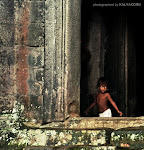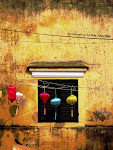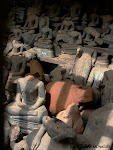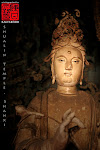By Kalyakorn Naksompop
Written on February 12, 2010
Last edit on September 7, 2010
It’s undeniable that culture heavily affects the design of curriculum, which affects the education as a whole. In fact, a curriculum always emerges as a reflection of a culture. But when we say “culture” here, it doesn’t necessary refer to only culture of “Thailand” or “America”. The culture that affects a curriculum can be referred to culture of today, whether it’s culture of the school itself, the culture of that particular community that the school is located in, or the regional culture, in combination with the future culture that the community and the country want. Therefore, when looking at a curriculum, you can learn about the characters of people within that culture as well as how they think about themselves now and how they want the next generation to be like.
When talking about curriculum design, one thing needed to be brought up is the impact that a government has on its country's education. I must admit that I used to only think about education as in students, teachers, textbooks, and parents; and that is as far as I would go. However, as I get to know more and more about education, I cannot overlook the power of the authorities and how it greatly affects education of each country. This makes me somehow wonder what the true meaning of education is.
We always talk about how we educators are so important that we are the people who significantly affect the future of this world. We also talk about various educational philosophies – saying that what we believe will change the face of the world. But from history, we know for a fact that the curriculum is designed by the government. Somehow, the government, in a way, literally uses education as a tool for propagandization to pass on the belief in which government wants people to believe to the next generation. For example, even with scientific proof that Columbus was not the first to discover America, yet American teachers are still teaching that he was because they have to. That is how it's written in the textbook.
literally uses education as a tool for propagandization to pass on the belief in which government wants people to believe to the next generation. For example, even with scientific proof that Columbus was not the first to discover America, yet American teachers are still teaching that he was because they have to. That is how it's written in the textbook.
Another example, which I found truly interesting, probably because it's close to my background, is the history of Thailand, Laos and Myanmar. When I was in primary school, I learned the history written by Thai, which refers to Laos as our sister or brother while Myanmar is our enemy because they burned down our old capital, Ayutthaya. When I visited Laos, it was the first time in my life to learn about the other side of the history, where Laos calls us the devil who burnt down their capital, Vientiene. Likewise, Myanmar chose to skip its some of its history, particularly on the part when they attacked Thailand and burned Ayutthaya down. So, it seems that each country has its own version of history depending on how they want the later generations to perceive the history. This is where the authorities play the biggest role in education.
With that being said, it is probably even more critical to rethink about our role as educators. Don’t get me wrong. I still believe that we do carry a big responsibility. What we do will eventually affect our world one way or another. However, in the system, we are one of the smallest bodies in education, yet we are the ones to directly practice the curriculum on our students. But even when we are the smaller bodies, is it possible for us to do something so that our students do not have to become the victim of propagandization? Are there any ways to hint students that there is another side of the truth? That I can’t really tell you but maybe Columbus did not discover America? That maybe Laotians don't love us as much as we thought they do?
even more critical to rethink about our role as educators. Don’t get me wrong. I still believe that we do carry a big responsibility. What we do will eventually affect our world one way or another. However, in the system, we are one of the smallest bodies in education, yet we are the ones to directly practice the curriculum on our students. But even when we are the smaller bodies, is it possible for us to do something so that our students do not have to become the victim of propagandization? Are there any ways to hint students that there is another side of the truth? That I can’t really tell you but maybe Columbus did not discover America? That maybe Laotians don't love us as much as we thought they do?
I would say yes.
This is why we have also been talking about the new kind of education, where critical thinking is emphasized and where students are encouraged to become learning persons. For this very reason, we need to really pay attention in our instruction whether it helps students or not and in what way. It is exactly why teaching students how to think by and for themselves is even more essential than ever.
Written on February 12, 2010
Last edit on September 7, 2010
It’s undeniable that culture heavily affects the design of curriculum, which affects the education as a whole. In fact, a curriculum always emerges as a reflection of a culture. But when we say “culture” here, it doesn’t necessary refer to only culture of “Thailand” or “America”. The culture that affects a curriculum can be referred to culture of today, whether it’s culture of the school itself, the culture of that particular community that the school is located in, or the regional culture, in combination with the future culture that the community and the country want. Therefore, when looking at a curriculum, you can learn about the characters of people within that culture as well as how they think about themselves now and how they want the next generation to be like.
When talking about curriculum design, one thing needed to be brought up is the impact that a government has on its country's education. I must admit that I used to only think about education as in students, teachers, textbooks, and parents; and that is as far as I would go. However, as I get to know more and more about education, I cannot overlook the power of the authorities and how it greatly affects education of each country. This makes me somehow wonder what the true meaning of education is.
We always talk about how we educators are so important that we are the people who significantly affect the future of this world. We also talk about various educational philosophies – saying that what we believe will change the face of the world. But from history, we know for a fact that the curriculum is designed by the government. Somehow, the government, in a way,
 literally uses education as a tool for propagandization to pass on the belief in which government wants people to believe to the next generation. For example, even with scientific proof that Columbus was not the first to discover America, yet American teachers are still teaching that he was because they have to. That is how it's written in the textbook.
literally uses education as a tool for propagandization to pass on the belief in which government wants people to believe to the next generation. For example, even with scientific proof that Columbus was not the first to discover America, yet American teachers are still teaching that he was because they have to. That is how it's written in the textbook.Another example, which I found truly interesting, probably because it's close to my background, is the history of Thailand, Laos and Myanmar. When I was in primary school, I learned the history written by Thai, which refers to Laos as our sister or brother while Myanmar is our enemy because they burned down our old capital, Ayutthaya. When I visited Laos, it was the first time in my life to learn about the other side of the history, where Laos calls us the devil who burnt down their capital, Vientiene. Likewise, Myanmar chose to skip its some of its history, particularly on the part when they attacked Thailand and burned Ayutthaya down. So, it seems that each country has its own version of history depending on how they want the later generations to perceive the history. This is where the authorities play the biggest role in education.
With that being said, it is probably
 even more critical to rethink about our role as educators. Don’t get me wrong. I still believe that we do carry a big responsibility. What we do will eventually affect our world one way or another. However, in the system, we are one of the smallest bodies in education, yet we are the ones to directly practice the curriculum on our students. But even when we are the smaller bodies, is it possible for us to do something so that our students do not have to become the victim of propagandization? Are there any ways to hint students that there is another side of the truth? That I can’t really tell you but maybe Columbus did not discover America? That maybe Laotians don't love us as much as we thought they do?
even more critical to rethink about our role as educators. Don’t get me wrong. I still believe that we do carry a big responsibility. What we do will eventually affect our world one way or another. However, in the system, we are one of the smallest bodies in education, yet we are the ones to directly practice the curriculum on our students. But even when we are the smaller bodies, is it possible for us to do something so that our students do not have to become the victim of propagandization? Are there any ways to hint students that there is another side of the truth? That I can’t really tell you but maybe Columbus did not discover America? That maybe Laotians don't love us as much as we thought they do?I would say yes.
This is why we have also been talking about the new kind of education, where critical thinking is emphasized and where students are encouraged to become learning persons. For this very reason, we need to really pay attention in our instruction whether it helps students or not and in what way. It is exactly why teaching students how to think by and for themselves is even more essential than ever.


.jpg)

.jpg)
.jpg)



You are absolutely correct! In fact, Columbus did not discover America. The Vikings of Denmark had been there a few hundred years earlier and they called it Vinland. To be completely honest, the first to discover America were the Siberian-Asians that crossed Bering's Straight some 100,000 years ago (not sure about the time). They are closely related to the Inuit people (commonly referred to as Eskimos) and now compile the Native Americans. History has always been written by a small part of the population, and even more so in the past, when power was often concentrated on a single person or a handful of people. Even more so, literacy was very uncommon and the privileges of recording history was rare.
ReplyDelete